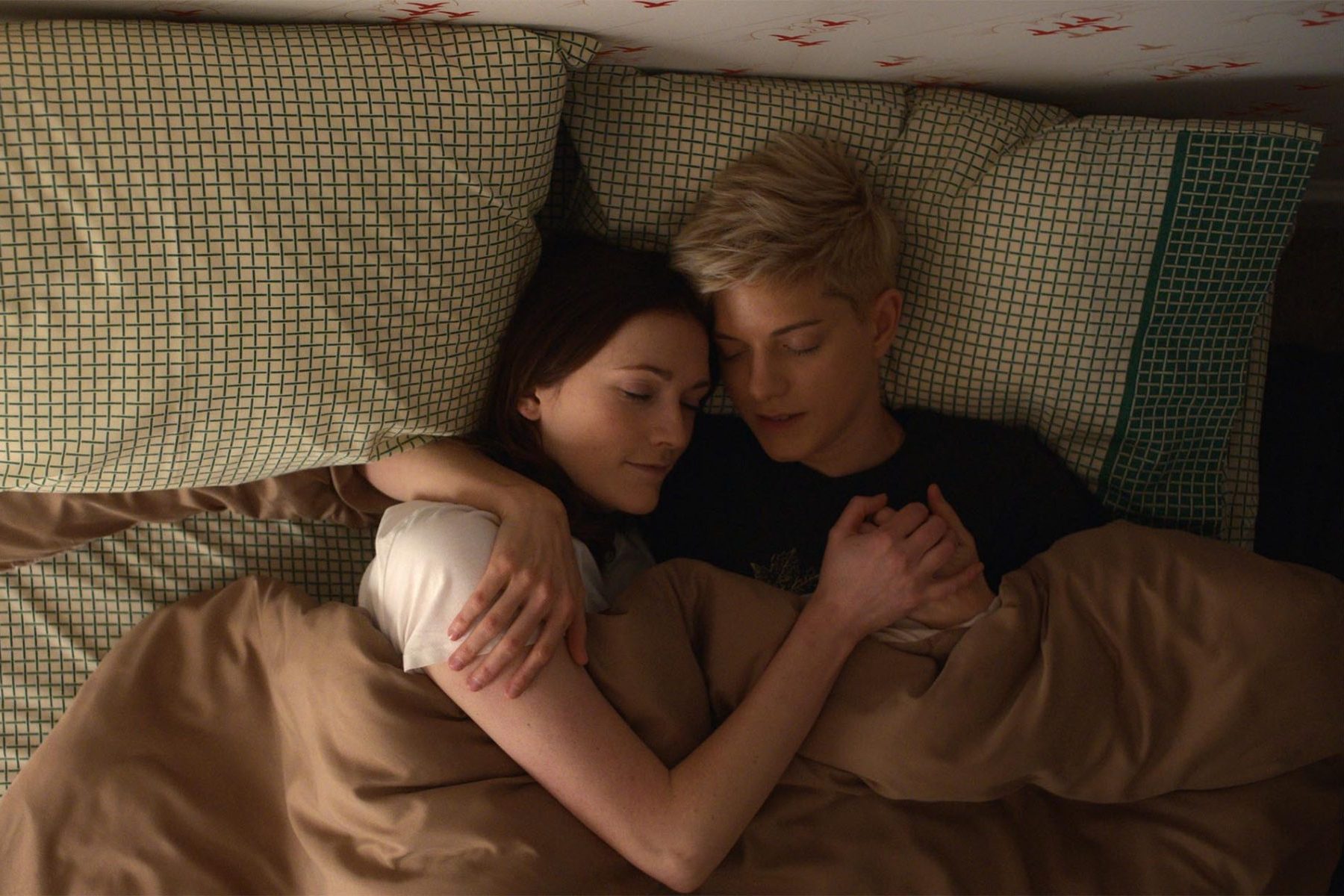Mild spoilers for Season 1 of “Feel Good” ahead and trigger warning for addiction/substance abuse and sexual assault/abuse
In the second and final season of “Feel Good,” Mae Martin explores complex trauma and toxic relationships. For those unfamiliar with the first season, Martin plays a fictionalized version of themself, following the tradition set by shows like “One Mississippi,” “Please Like Me,” “Work in Progress,” and even all the way back to “Seinfeld.” The first season had Martin (the fictional version) dealing with a new relationship and life as a (kind of) recovered addict.
The humor of the show often comes from sad or traumatic moments; some standouts include Martin’s new girlfriend coming out after hiding their relationship (all while high on painkillers after an accident with a coffee table and brandishing a strap on-dildo) and the running joke about Martin stealing and reselling some hideous ornamental pears at the height of their struggle with addiction. The jokes land, but it’s impossible not to sympathetically flinch when Martin tells them.
The series’s second season feels even more personal.
Season 1 of “Feel Good” ended with Martin returning to their home in Canada to pursue rehab after ending things with their charmingly posh British girlfriend, George (played by Charlotte Ritchie). When Martin arrives at the facility they frequented as a teen, they are greeted warmly but are quickly reminded of the problems they had hoped to outrun by moving to England. They ultimately decide to flee the rehab facility and end up calling on an old friend whose appearance causes more turmoil than solace.
Martin becomes plagued by debilitating panic attacks, often opting to find a piece of furniture to lie absolutely still under in order to mentally regroup. Apropos of a viral comedy clip from Season 1, they are picked up by an exclusive and snobby agent, who encourages them to go on a fellow comedian’s show to call him out for sexual assault. The combination of these events requires Martin to deal with the sexual assault/abuse they experienced in their teens and PTSD caused by their dormant trauma.
Overall, the new episodes find Martin hitting their stride, which makes the fact that it is the show’s final season all the more bittersweet. While some characters from Season 1 are disregarded entirely, it is clear that Martin has made the choice to narrow the cast down to the characters that have the potential to grow toward an impactful ending. Martin’s girlfriend in the show, George, is allowed to explore her sexuality during their temporary break up and Ritchie manages to be just as endearing in her own scenes as she is in her moments with Martin. Martin’s own sexuality is also explored, along with the complexity of their gender identity in relation to it.
Really, the strongest element of the new season is Martin’s treatment of sexual assault, trauma and the #MeToo movement. After temporarily returning to Canada for rehab, Martin’s character slowly realizes that their trauma and PTSD have made it emotionally (and literally) difficult to recall their teenage years. Eventually, they realize that this is, in part, due to the abusive and pedophilic relationships they were involved in as a young teen, one in particular being especially painful.
This season sees Martin grappling with how to handle the trauma of their experiences, as well as exploring who deserves to be held accountable when it comes to sexual harassment and assault. “Feel Good” ultimately builds to an emotional peak when Martin breaks through the smokescreen of cancel culture to address the reality of sexual assault, especially when it comes from someone you care about.
It’s important to note that the trauma Martin experiences — from both their struggle with addiction and sexual assault — are not born from their identity as a queer person. In fact, Martin is consistently validated by those around them, except for a few brief run-ins with minor characters. One of the sweetest moments of the new season comes when Martin discusses their gender briefly with their girlfriend George. In real life, Martin recently came out as nonbinary and uses she/they pronouns. In the show, their girlfriend validates this aspect of their identity immediately. Martin also identifies as bisexual and while they are in a monogamous sapphic relationship for most of the show, their sexuality is acknowledged without becoming a punchline.
Composed of six roughly 30-minute episodes per season, “Feel Good” is a great quick watch. Martin’s comedy is very in line with the current trend of humor from trauma, most notably demonstrated in “Hannah Gadsby: Nanette” and more recently done by Bo Burnham in “Inside.” It’s likely that viewers who enjoyed either will find Martin’s work just as uncomfortably charming. “Feel Good” is available for viewing on Netflix and, if you would like to see more of them, you can find Martin’s traditional stand-up sets on YouTube.
Obviously, viewers should be advised that their material deals with sexual assault and addiction and should view at their own discretion. If you are dealing with sexual assault, please talk to someone you trust or call the National Sexual Assault Hotline at 1-800-656-4673. Likewise, if you are struggling with addiction, talk to someone you trust or dial 1-800-662-4357.
















